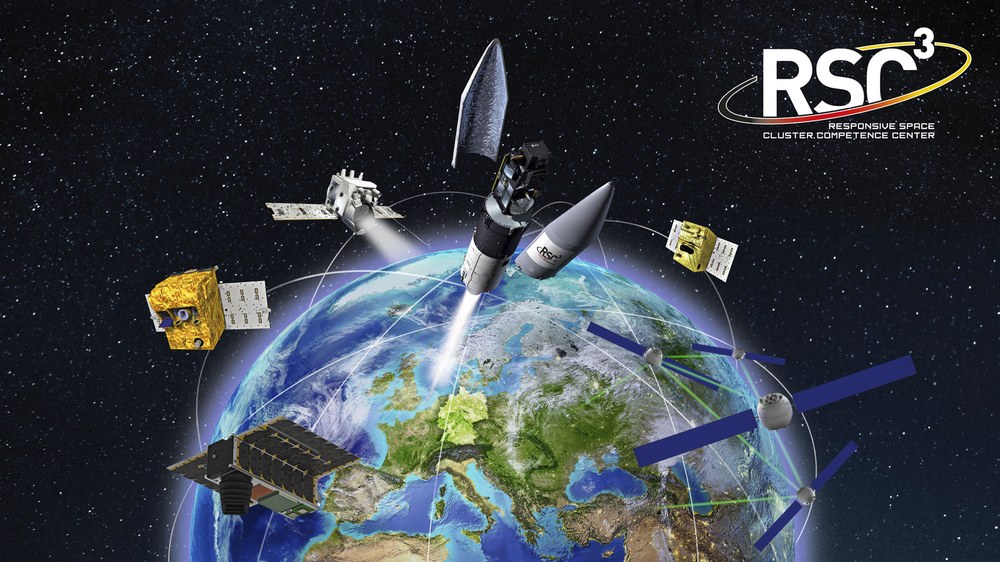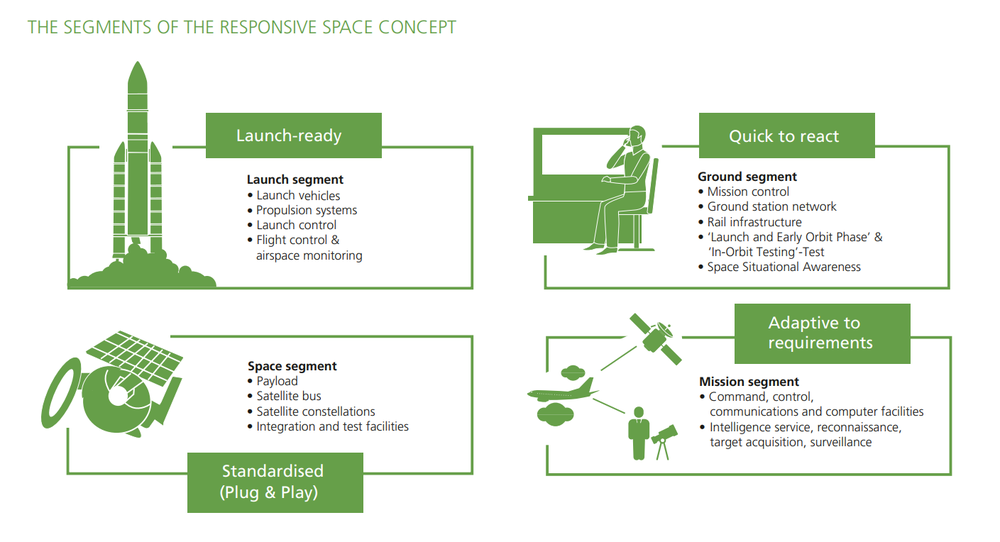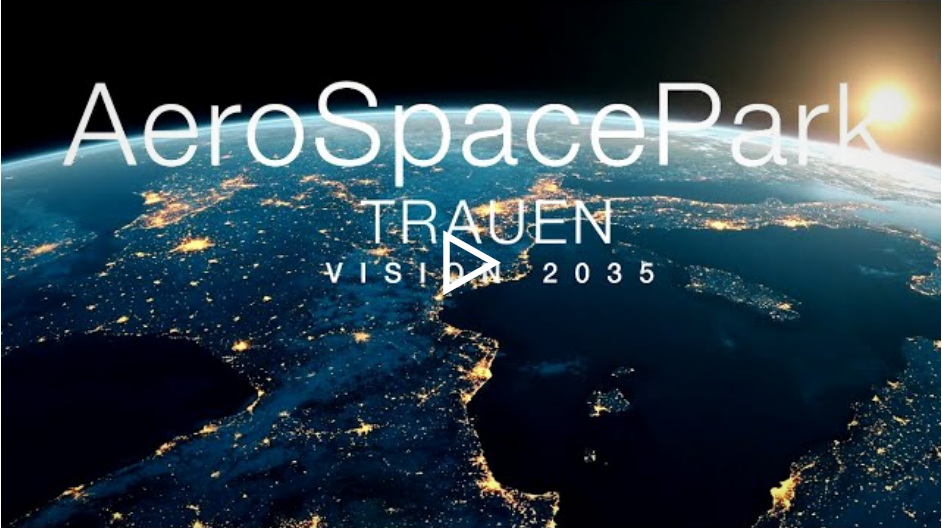Responsive Space Cluster Competence Center

The German Aerospace Center (DLR) has established a national Responsive Space Cluster Competence Center (RSC³) with the support of the German Federal Ministry of Defense (BMVg). The RSC³ implements the Responsive Space Capabilities research program both inside and outside DLR by exploiting the synergies between civil and defense technology research and building a national network of research, academia, industry and users. The competence center acts as a coordinator and catalyst and serves as a central point of contact. Internationally, the RSC³ participates in the NATO Science and Technology Organization (NATO STO), the EU's European Defense Fund (DEFIS EDF: https://defence-industry-space.ec.europa.eu/eu-defence-industry/european-) and the Responsive Space Capabilities Memorandum of Understanding (RSC MoU).
The RSC³ was founded on September 1st, 2020 as part of the AeroSpace Park at the DLR site in Trauen (Lower Saxony).
Responsive Space
Responsive Space is the capability to respond short-term needs through the rapid deployment of small satellites, also known as Responsive Launch, or the reconfiguration of space systems already in use.
Responsive Space increases the resilience of critical space infrastructure and serves as a deterrent by replacing failed capabilities, expanding existing ones, or deploying new capabilities.

RSC³ Mission Statement
"Setup the technology base for a national Responsive Space capability (embedded in EU/NATO) and demonstrating innovative technologies in an operational environment."
The applications range from the classic areas of satellite communication, reconnaissance and surveillance, positioning and navigation, space situational awareness, space weather and missile early warning. New subject areas include servicing, assembly, manufacturing as well as access, mobility and logistics on-orbit and in-space.

AeroSpacePark Trauen – Vision 2035
Your consent to the storage of data ('cookies') is required for the playback of this video on Youtube.com. You can view and change your current data storage settings at any time under privacy.
